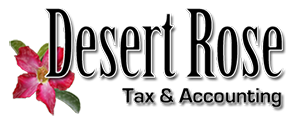How to Choose the Right Tax Professional: Questions to Ask and Red Flags to Avoid
Choosing a tax professional is like choosing a doctor—you're trusting them with sensitive information and relying on their expertise for your financial health. Yet many people spend more time researching a restaurant for dinner than vetting the person who handles their taxes.
The wrong choice can cost you thousands in missed deductions, trigger unnecessary audits, or leave you defenseless when the IRS comes calling. The right choice gives you a trusted advisor who saves you money, reduces stress, and helps you build wealth strategically.
This guide will help you ask the right questions, spot the warning signs, and find a tax professional who truly serves your interests—not just during tax season, but year-round.
When You Actually Need Professional Help
Before diving into how to choose, let's address when DIY stops making sense.
Life Changes That Demand Expertise
Major life transitions almost always create tax complexity that software can't fully address. Starting or selling a business involves entity selection, deduction strategies, and potential tax elections that have long-term consequences. Marriage or divorce—especially with complex assets—requires understanding filing status optimization, asset transfers, and potential liability issues. Receiving an inheritance brings questions about basis step-up, estate taxes, and distribution timing.
Geographic changes matter too. Moving across state lines can trigger partial-year resident returns, credit for taxes paid to other states, and different treatment of retirement income. Significant income changes, whether up or down, affect estimated tax requirements, withholding strategies, and potentially your eligibility for various credits and deductions. Retirement transitions involve decisions about distributions, Roth conversions, and Social Security timing that have permanent tax impacts.
Tax Complexity Red Flags
Certain income sources and deductions automatically complicate your return beyond typical software capabilities. Self-employment or freelance income isn't just about Schedule C—it's quarterly estimates, self-employment tax, retirement plan options, and business deductions that require expertise to maximize. Rental properties involve depreciation decisions, passive loss rules, and repair versus improvement distinctions that can trigger audits if handled incorrectly.
Investment complexity has exploded recently. Stock options and RSUs have specific timing rules and withholding traps. Cryptocurrency transactions require tracking basis across multiple exchanges and understanding when trades trigger taxable events. Multiple state obligations mean understanding reciprocity agreements, credit mechanisms, and different state treatments of income types. Even the home office deduction, while valuable, has specific requirements and documentation needs that poorly handled can trigger scrutiny.
Signs You've Outgrown Software
The software itself will tell you when you need help—you just need to recognize the signs. If you're constantly encountering questions you can't answer or leaving entire sections blank because they're confusing, you're gambling with accuracy. When your return gets rejected repeatedly or you owe significantly more (or less) than expected without understanding why, something's wrong. Perhaps most telling: if preparing your own return takes days of frustration and you're still not confident it's right, the few hundred dollars saved isn't worth the stress and risk.
The Essential Interview: 10 Questions That Reveal Everything
Don't hire the first professional you meet. Interview at least three and ask these revealing questions:
-
"How many clients like me do you have?"
Listen for specific experience with your situation. You want someone who regularly handles returns like yours—whether that's small business, real estate, or complex investments. They should be able to describe similar situations and challenges without naming names. A vague "lots of clients" isn't enough. If you're a landlord, they should immediately mention depreciation and passive losses. If you're self-employed, they should discuss quarterly estimates. Experience matters.
-
"What state-specific credits and deductions do you commonly claim for clients?"
Even if a CPA or EA can legally file anywhere, state expertise has real value. Every state has unique opportunities—some offer generous charitable credits, others have special deductions for seniors or parents. Ask them to name specific credits or recent state law changes. If they can't, they might be nationally competent but locally ignorant, potentially costing you thousands.
-
"What's your approach to tax planning versus tax preparation?"
Tax preparation looks backward—reporting what already happened. Tax planning looks forward—strategizing to minimize future taxes. You want someone focused on both. If they only discuss filing returns, they're not thinking strategically. Ask how often they'll check in during the year and whether they proactively suggest strategies. The best professionals contact you before year-end with tax-saving moves.
-
"How do you handle communication and billing for questions throughout the year?"
Many clients don't realize that what seems like a "quick question" often requires research and calculations. Good professionals explain their policy clearly. Some include consultations in their annual fee; others bill for every interaction. Neither is wrong—you just need to understand what triggers charges. Ask specifically: Are brief questions included? What constitutes a consultation? How quickly do they typically respond?
-
"What's your philosophy on deductions—aggressive or conservative?"
This reveals whether their approach matches your risk tolerance. Some preparers are overly conservative, avoiding legitimate deductions because they "might trigger an audit." Others push boundaries dangerously, claiming everything remotely business-related.
The best answer falls in the middle: "I take every deduction you're legally entitled to, but I make sure we can defend it." They should be willing to claim legitimate deductions even if they might attract scrutiny (like home office), but ensure you truly qualify. If they seem terrified of the IRS or dismissive of rules, neither extreme serves you well.
-
"Who actually prepares my return, and who reviews it?"
At many firms, the person you meet isn't who prepares your return. Partners often handle strategy while staff do data entry. This can work well with proper oversight. Ask who prepares it, their qualifications, and who reviews it before filing. Also important: can you contact the preparer directly with questions, or does everything go through the partner? Understanding their process helps ensure your return gets appropriate attention.
-
"What happens if there's an error on my return?"
Mistakes happen, but responsibility depends on the source. If they make an error, they should fix it free and cover resulting penalties and interest. Ask if they carry professional liability insurance. If you provide incorrect information, you'll typically pay for amendments—that's fair. But good firms help you avoid these issues next year by improving their organizers or asking better questions.
-
"Can you actually represent me if I'm audited?"
This is crucial: many preparers can file returns but can't represent you if problems arise. CPAs, EAs, and attorneys have unlimited representation rights. Others may have limited or no ability to help. Ask directly: "If I get audited, can you handle it, or will I need to hire someone else?" Being unable to defend the return they prepared is a serious limitation.
-
"Are you available year-round, and how do you protect my data?"
Two critical operational questions. First, availability: some preparers disappear after April 15. If you get an IRS notice in July, will they be there? Second, security: in an age of data breaches, how do they protect your sensitive information? Look for encrypted portals (not regular email), secure storage, and cyber insurance. If they're casual about security, that's concerning.
-
"Why should I choose you over other tax professionals?"
This open-ended question reveals confidence and priorities. Weak preparers give generic answers about experience or price. Strong professionals will ask about your specific needs and explain how they address them. They might point out planning opportunities you haven't considered or explain their particular expertise. Pay attention to whether they focus on value or just cost.
Red Flags That Should Send You Running
The IRS prosecutes hundreds of fraudulent preparers annually. Protect yourself by watching for these warning signs:
Immediate Deal-Breakers
There are certain red flags that should end your interview immediately. First and foremost, any preparer who won't provide their PTIN (Preparer Tax Identification Number) or refuses to sign your return is breaking the law. The IRS requires anyone who prepares taxes for compensation to have a PTIN and to sign every return they prepare—no exceptions. This isn't optional; it's federal law. These "ghost preparers" who refuse to sign are often trying to avoid IRS scrutiny because they know they're doing something wrong.
Similarly illegal is charging based on a percentage of your refund. The IRS explicitly prohibits this practice because it incentivizes preparers to inflate refunds through fraudulent means. If someone guarantees a specific refund amount before even looking at your documents, run. They're either planning to lie on your return or they're completely incompetent—neither is acceptable. Claims of "special relationships" with the IRS or "secret deductions only I know about" are pure fiction. The tax code is public information, and no one has insider privileges.
Watch out for seasonal operations too. Those tax preparation kiosks that pop up in grocery stores and shopping centers in January often disappear by May. If the IRS questions your return in July, that empty storefront won't help you. A legitimate professional has a permanent address and professional liability insurance to protect you if they make mistakes.
During Preparation
The way a preparer handles your return reveals everything about their ethics and competence. The biggest red flag is asking you to sign a blank return or forms that aren't complete. This gives them carte blanche to write anything they want after you've signed—claiming dependents you don't have, inflating deductions, or even redirecting your refund. Never, ever sign a blank return, no matter how much you trust the preparer or how rushed they claim to be.
Speaking of refunds, any preparer who wants your refund deposited into their account is essentially stealing from you. They might claim it's for "convenience" or to ensure their fees are paid, but this is completely inappropriate and often illegal. Your refund should only go to your account.
When it comes to documentation, there's a balance to understand. Experienced CPAs don't need to see every receipt for every deduction—they often work from summaries, totals, or your organized records. However, they should ask probing questions about unusual items, large deductions, or anything that might trigger IRS scrutiny. The red flag isn't a preparer who trusts your totals for routine expenses; it's one who doesn't ask questions when you claim something unusual, accepts round numbers for everything, or suggests deductions without asking if you qualify. If a preparer says you can claim a $10,000 home office deduction without asking about your home's size or your business use, that's a problem.
Perhaps most disturbing is any suggestion that you should lie or hide income. A preparer who says "the IRS won't notice" or "everyone does it" is setting you up for an audit, penalties, and possible criminal charges. Remember, you're the one signing the return under penalty of perjury—not them. If they're willing to lie on your return, what else are they lying about?
Professional Warning Signs
Beyond the obvious fraud indicators, there are professional red flags that suggest incompetence or poor service even if the preparer is technically legitimate. A preparer with no recent continuing education is likely using outdated knowledge—tax laws change every year, and what was perfectly legal last year might trigger penalties today. If they can't explain tax concepts in terms you understand, they either don't understand it themselves or they're trying to confuse you. Neither is acceptable when you're trusting them with your financial life.
Defensiveness about reasonable questions is particularly concerning. You have every right to understand your return and their process. A professional who gets angry or dismissive when you ask for clarification is hiding something—maybe their lack of knowledge, maybe their questionable practices. Similarly, consistently missed deadlines or poor communication during your initial interactions will only get worse under the pressure of tax season. If they can't return a phone call when they're trying to win your business, imagine how they'll treat you when they have hundreds of other clients.
Behavioral Red Flags
Pay attention to behavioral patterns that reveal a preparer's true character and business practices. Anyone who promises you'll "never be audited" is either lying or planning to file such conservative returns that you'll overpay significantly. The IRS selects returns for audit based on numerous factors, many random, and no one can guarantee immunity. Similarly, dismissive phrases like "everyone does it" when discussing questionable deductions show a casual attitude toward tax law that will eventually catch up with you.
The preparer's business practices matter too. If they won't put fee agreements in writing, how will you resolve disputes about billing? A professional operation documents everything. If they don't return calls during the interview process when they're trying to earn your business, they certainly won't be responsive when you're just another client during busy season.
The physical environment tells a story as well. While a fancy office doesn't guarantee competence, complete disorganization should worry you. If they can't keep their own space organized, how will they handle your documents? Watch how they treat their staff too—stressed, unhappy employees often make mistakes, and high turnover means no one will remember your situation from year to year.
What Excellence Actually Looks Like
Beyond avoiding red flags, here's what great tax professionals provide:
Year-Round Partnership
Excellence means availability beyond tax season. Great professionals schedule quarterly check-ins to review your tax situation and suggest adjustments before year-end. They proactively alert you to tax law changes that affect your situation—not generic newsletters, but specific impacts on your finances. When questions arise, they're accessible and responsive, not hiding behind gatekeepers. Most importantly, they provide strategic advice that goes beyond taxes, understanding how tax planning integrates with your broader financial goals.
Proactive Approach
The best professionals don't just process what you give them—they actively look for opportunities. They'll review your prior returns for missed deductions or credits, potentially filing amendments if the savings justify it. They suggest timing strategies for income and deductions, helping you manage tax brackets and optimize multi-year planning. Before filing, they identify potential audit triggers and address them proactively with documentation or explanations. They think about your long-term financial health, not just this year's refund.
Clear Communication
Tax complexity doesn't have to mean confusion. Excellent professionals explain concepts in terms you understand, avoiding jargon or talking down to you. They provide clear checklists and organizers that make gathering documents straightforward. Rather than just doing your taxes, they teach you about the tax implications of your decisions so you can make informed choices year-round. Perhaps most importantly, they never make you feel stupid for asking questions—even if you've asked the same question before.
Modern Technology
Today's best firms embrace technology for your convenience and security. They use encrypted portals for document sharing—never asking you to email sensitive information. Your returns and documents are stored electronically where you can access them anytime. They offer mobile apps or responsive communication systems that don't require playing phone tag. Cloud-based storage means your documents are safe even if disaster strikes their office. Technology should make your life easier, not harder.
Making Your Final Decision
After interviews, consider these factors:
The Intangibles Matter
Beyond credentials and experience, pay attention to the human elements that affect your working relationship. Communication style is crucial—do they explain things clearly without condescension?
Consider personality fit—you'll be sharing intimate financial details, so comfort matters. Their responsiveness during the interview process predicts future service—if they take a week to return your initial call, expect that pattern to continue.
The office environment tells a story too. While fancy offices don't guarantee competence, complete chaos suggests disorganization that could affect your return. Watch how they treat their staff—happy employees make fewer mistakes, while high turnover means you'll constantly work with new people who don't know your situation.
Trust Your Instincts
If something feels off, it probably is. The lowest price isn't always the best value, and the biggest firm isn't always the best choice. Find someone who genuinely listens to your concerns rather than rushing through a checklist. They should respect your time by being punctual and prepared. You should feel like a valued client, not just another return to process. Most importantly, they should demonstrate competence through their questions and insights, not just claim experience.
Preparing for Success
Once you've chosen a professional, set the relationship up for success:
Before Your First Appointment
Come prepared to make the most of your time and their expertise. Gather your last 2-3 years of tax returns so they can understand your history and potentially find missed opportunities. Collect all current year tax documents—W-2s, 1099s, receipts for deductions—organized in a logical way. Don't worry about perfection, but basic organization shows respect for their time. Include financial statements and investment summaries that give them the complete picture of your financial life.
Preparation goes beyond documents. Write down specific questions and concerns you have about your tax situation. Note any major changes from last year—new job, marriage, home purchase—that might affect your taxes. List your financial goals so they can align tax strategies with your broader objectives. Most importantly, be completely honest about everything, including past mistakes or unfiled returns. They can't help you properly if they don't have the full story, and attorney-client privilege doesn't apply to tax preparers—hiding information serves no purpose.
Maintain the Relationship
A good professional relationship requires effort from both sides. Respond promptly to their requests for information—delays on your end create rushes on theirs, increasing error risk. Keep organized records throughout the year rather than scrambling at tax time. Communicate major life or financial changes as they happen, not months later when options are limited. Pay their bills on time—it's hard to provide good service to clients who don't pay. And if you're satisfied with their service, refer others—good professionals appreciate client referrals more than any marketing.
The True Cost of Choosing Wrong
Saving money on preparation fees can cost you dearly in other ways. Missed deductions worth thousands are the most obvious cost—a competent professional pays for themselves through tax savings alone. But the costs compound: IRS penalties and interest on errors, audit representation you'll have to hire separately, fees for amended returns to fix mistakes, and lost opportunities for tax planning that could have saved money for years to come.
Don't forget the intangible costs either. The stress of IRS notices you don't understand, sleepless nights worrying about audit risk, time lost dealing with tax problems, and the opportunity cost of money paid unnecessarily to the IRS—these all take a toll. Quality tax preparation is an investment that pays returns every year through saved taxes, avoided penalties, and strategic planning.
Why Working With the Right Professional Matters
The right tax professional doesn't just prepare returns—they become a crucial partner in your financial success. They save you money through strategic planning that goes beyond obvious deductions, finding opportunities you didn't know existed. They protect you from costly mistakes that could trigger audits or penalties. When issues arise—and they will—they can actually represent you, not just offer sympathy.
Beyond the tangible benefits, they provide peace of mind that your taxes are handled correctly, letting you focus on your business or career instead of tax worries. Over time, they help you build wealth through tax-efficient strategies that compound year after year. They become a trusted advisor who understands your complete financial picture and can offer insights beyond just taxes. Don't wait until tax season's chaos to find help—the best professionals are often booked months in advance.
Your Next Step
At Desert Rose Tax & Accounting, we believe in building long-term relationships with our clients. We're not just tax preparers—we're your financial partners, providing year-round guidance and strategic planning.
We offer:
- Experienced CPAs and qualified professionals
- Year-round availability and support
- Proactive tax planning strategies
- Clear, upfront pricing
- Modern technology for convenience
- Representation if you need it
Ready to find your trusted tax advisor? Visit www.desertrosetax.com or call (520) 747-4964 to schedule your consultation.
Edward Ethington, CPA, MBA
Desert Rose Tax & Accounting Your Strategic Tax Planning Partner (520) 747-4964 www.desertrosetax.com
This blog provides general guidance about selecting tax professionals and should not be construed as specific advice. The selection of a tax professional is an important decision based on individual circumstances. Please schedule a consultation with Desert Rose Tax & Accounting to discuss your needs.























